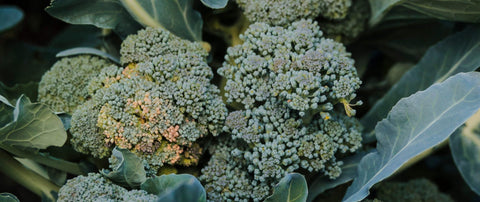With increasing age, men's health becomes more and more important. This is often due to changes in the body, which can cause complaints in the prostate and urinary tract in particular. In this article, we would like to explain the relevance of the prostate and urinary tract for the male body and give you valuable tips on how you can support your men's health in the best possible way despite advancing age.
Inhaltsverzeichnis
The prostate and urinary tract in the male body
Men are under constant pressure: whether at work, where they often have to work overtime and always be functional, in their private lives or in their social environment. They are constantly running at full speed and like to have everything under control. Men can quickly become overwhelmed. But as is the nature of men, giving up is only an option in the rarest of cases. The first German Men's Health Report, published in collaboration with the Men's Health Foundation and the German Society for Men and Health (DGMG), states that men cling to their image of the "stronger sex" and must not show any weakness. As a result, they are exposed to a higher health risk. 1 It is by no means unmanly to look after your health, but a sign of responsibility and respect for your own body.
This neglect often leads to complaints in old age that could have been avoided if they had been checked early on. In addition to diseases such as diabetes and cardiovascular diseases, men - from around the age of 50 - often suffer from an age-related enlarged prostate. This is usually harmless, but as the prostate is located directly under the bladder, it can put a lot of pressure on the bladder and cause an increased urge to urinate. The feeling of an incompletely emptied bladder can also be a sign of enlargement. The main function of the prostate is to produce a portion of the seminal fluid that transports the sperm. Before it becomes enlarged with age, the prostate is about the size of a chestnut.
The risk of prostatitis also increases with age. According to the Robert Koch Institute, around 15% of men develop prostatitis at least once in their lifetime, usually between the ages of 40 and 50. 2 Inflammation of the prostate is associated with considerable pain when urinating and is more likely to occur with an enlarged prostate.
In the worst case scenario, anyone who neglects preventive examinations runs the risk of prostate cancer remaining undetected. This can initially grow unnoticed and spread to other organs. The symptoms usually appear when it is already too late. Anyone who experiences severe pain in the lower back and blood in the seminal fluid or urine should therefore see a doctor as soon as possible and have the background clarified.
How men can contribute to prevention
To prevent prostate disease and strengthen the urinary tract, it is important to listen to your body and take your health seriously and proactively. We have put together some effective tips and measures for you that can help you to minimize the risk of illness or discomfort:

-
A healthy diet
Even if a healthy and balanced diet does not cause the prostate to shrink again, a nutrient- rich diet has a positive effect on the body. A nutritious diet can help to alleviate the symptoms of prostate disease. Prof. Dr. Stefan Zimny, Chief Physician for Internal Medicine, Diabetology and Endocrinology at the Helios Clinics in Schwerin, comments as follows: "A healthy diet can prevent prostate disease and have a positive effect on the course of the disease in patients." 3
A diet with vegetable fats instead of animal fats is recommended, as these contain unsaturated fatty acids such as omega-3 and -6 fatty acids. These include linseed oil, nuts, linseed, chia seeds and avocado. However, the German Nutrition Society (DGE) recommends consuming a maximum of 30% of calories in the form of fat. 4 Unfortunately, fatty foods are consumed far too much nowadays, especially in the form of fast food and sweets. Among other things, unhealthy fats are associated with triggering inflammation in the body and can lead to diseases such as cancer if consumed over a long period of time or in excess. Healthy fats, on the other hand, are considered anti-inflammatory and can keep the hormone system in balance, especially testosterone, which is responsible for healthy prostate function.
Dietary fiber should be another part of your daily diet. This is because they are also associated with maintaining hormonal balance. Fruit and vegetables are, of course, an essential part of a healthy diet. In addition to the important micro and macronutrients, they also contain secondary plant substances. These have antioxidant properties and can support both the immune system and the prostate.
Sufficient fluid intake should also be ensured. As a rule, around 1.5-2 liters are recommended. This sounds pretty low at first, as most people still assume that we should drink around 3 liters a day. However, this does not take into account the fact that we also consume a lot of water through food.
-
Movement
A lack of exercise is not good for the body per se and can have significant consequences sooner or later. A 2019 study found that certain fat deposits as well as a man's BMI and waist circumference are associated with an increased risk of aggressive prostate cancer. 5 "On the other hand, fatty tissue influences hormone metabolism," says Prof. Dr. Stefan Zimny. He adds: "A normal weight should therefore be aimed for and can be achieved through a healthy lifestyle." 6
It is therefore very important to integrate sufficient exercise into everyday life. This can be done through regular sports sessions, but also by taking a high number of daily steps, such as walking or climbing stairs. Avoiding constant sitting can also be a good start.
-
Stress management
Mental health is just as important as physical fitness. This is because stress, lack of sleep and inner restlessness can be responsible for causing hormonal imbalances. Stress releases the stress hormone cortisol, which promotes hormonal chaos. It can also have a negative impact on testosterone levels and cause inflammation in the body.
-
Regular screening
Men aged 45 and over can take advantage of a free screening examination once a year. This involves palpation of the genitals and prostate. Abnormal lymph nodes and larger tumors can be detected. Hidden or smaller tumors can still remain undetected, which is why it makes sense to carry out a PSA test in addition to this examination. The costs for the PSA test are not covered by health insurance and must therefore be paid privately.
As part of this test, the antigen (PSA) is tested after the blood sample has been taken. The higher the PSA value, the higher the probability that prostate cancer is present. However, high PSA values can also have other causes. Nevertheless, screening appointments can help to avoid the worst. If you have any questions or concerns on this topic, you can consult your doctor.
Natural Support
The power of nature has solutions for numerous ailments and complaints. Many natural plants have a relaxing effect on the muscles. This naturally also benefits the prostate and urinary tract. In this context, our product N°33 has proven to be a successful support for the prostate and urinary tract. Many men are already turning to herbal remedies, as they generally have no side effects and restore their well-being at a mature age.
These natural helpers are contained in N°33 PROSTA:
Anzeige

-
Saw palmetto
The saw palmetto belongs to the palm family. The extracts of the plant are used in traditional medicine to alleviate urinary symptoms caused by an enlarged prostate. Saw palmetto is often studied in conjunction with other medicinal plants to combat the symptoms caused by an enlarged prostate. This is indicated by clinical studies that show a possible synergistic effect of saw palmetto with other medicinal plants and drugs. Recent meta-analyses have shown that the effectiveness of saw palmetto is comparable to finasteride and tamsulosin (active ingredients used to treat an enlarged prostate). In addition, taking a preparation containing saw palmetto helps significantly better in the treatment of mild to moderate symptoms of the lower urinary tract, nocturnal urge to urinate and discomfort than a placebo. 7
-
Pumpkin seed
Pumpkin seed extracts or pumpkin seed oil are often recommended for an enlarged prostate to reduce symptoms such as the constant urge to urinate, nocturnal urination and the feeling of not having completely emptied oneself. It is believed that the phytosterols in pumpkin seeds have anti-inflammatory properties. The omega-3 and omega-6 fatty acids in pumpkin seeds can also support hormone balance - especially testosterone.
-
Stinging nettle
Nettles contain many nutrients, including vitamins C, E, A, K and D as well as valuable minerals, including iron, magnesium, potassium and calcium. Nettles are also rich in secondary plant substances. The traditional medicinal plant is said to have a draining and anti-inflammatory effect as well as antioxidant properties. An enlarged prostate can cause unpleasant symptoms in the urinary tract. In this context, a study was published that investigated the effect of nettles on age-related prostate enlargement. A medium effect on the International Prostate Symptoms Score (IPSS) was observed. IPPS is an index that is used to assess the symptoms of an enlarged prostate. In addition, a medium to large effect on the malondialdehyde values was observed. These values are considered a marker for oxidative stress. It can therefore be concluded that nettle root extract can have a positive effect on symptom relief in the case of an enlarged prostate, but also on inflammation in the body.8
-
Pomegranate peel extract
The pomegranate has been considered a medicinal remedy for thousands of years due to its antioxidant and anti-inflammatory effects. This is because the superfood is rich in nutrients and phytochemicals. The prostate and urinary tract also benefit from the positive properties of the pomegranate, as the pomegranate is associated with supporting men's bladder health.
-
Black garlic
Black garlic is nothing other than the fermented white garlic that we are usually familiar with. Due to the fermentation, the antioxidants it already contains have an even stronger effect. For this reason, black garlic is considered extremely healthy and is also associated with supporting the prostate and urinary tract. A 2003 study investigating the potential effects of garlic extract supplementation for age-related enlarged prostate showed the following: Patients consumed 1 ml/kg body weight of liquid garlic extract daily. The disease parameters were examined before and after treatment. It was found that the mass of the prostate was reduced and the frequency of urination decreased. 9
-
Broccoli extract
Broccoli is the insider tip when it comes to men's health. The sulforaphane it contains is considered to be particularly antioxidant. And rightly so, as broccoli contains a wide range of nutrients, including vitamins B2, B6, E and C as well as potassium, calcium, phosphorus, iron, zinc and sodium. The power vegetable is said to increase testosterone production and promote hormonal balance. Unfortunately, many nutrients are lost when broccoli is cooked, which is why it is advisable to supplement broccoli extract. This also allows for an optimal dosage.
-
Zinc and selenium
Zinc and selenium are essential minerals that are indispensable for humans. However, in addition to supporting the immune system and oxidative protection of cells, zinc and selenium also fulfill other important tasks in the male body: zinc contributes to normal fertility and normal reproduction as well as maintaining normal testosterone levels in the blood. Selenium, on the other hand, is responsible for normal sperm formation and normal thyroid function. As additional ingredients, they complement the formula and make the product N°33 PROSTA complete.
Conclusion
Every body changes over the years - this is completely normal and cannot be prevented. What we can do, however, is to support our body as best we can in its process of change and thus do something good for ourselves. Nature has provided us with numerous foods to minimize the physical complaints that result from this. Based on the positive study reports, it is definitely worth integrating these into your diet or supplementing them.
Sources
-
Stiftung Männergesundheit. (2010). Erster Deutscher Männergesundheitsbericht. Zuckschwerdt Verlag. https://www.stiftung-maennergesundheit.de/publikationen-details/der_erste_maennergesundheitsbericht
-
Rohde, V., Katalinic, A., & Wasem, J. (unter Mitarbeit von Aidelsburger, P.). Prostataerkrankungen (Gesundheitsberichterstattung des Bundes, Heft 36). Robert Koch-Institut.
-
Gesundheitsberichterstattung Helios Gesundheit. (2022). Gesunde Ernährung für die Prostata. Helios Gesundheit. https://www.helios-gesundheit.de/magazin/news/03/prostata-ernaehrung/
-
Deutsche Gesellschaft für Ernährung e. V. (DGE). (2023, 2. November). Fett in der Ernährung: Fakten rund um die Bedeutung von Fett für den Körper. DGE Blog. https://www.dge.de/blog/2023/fett-in-der-ernaehrung-fakten-rund-um-die-bedeutung-von-fett-fuer-den-koerper/
-
Dickerman, B. A., Torfadottir, J. E., Valdimarsdottir, U. A., Giovannucci, E., Wilson, K. M., Aspelund, T., Tryggvadottir, L., Sigurdardottir, L. G., Harris, T. B., Launer, L. J., Gudnason, V., Markt, S. C., & Mucci, L. A. (2019). Body fat distribution on computed tomography imaging and prostate cancer risk and mortality in the AGES-Reykjavik study. Cancer, 125(17), 3064–3073. https://doi.org/10.1002/cncr.32167
-
Helios Gesundheit. (2022). Gesunde Ernährung für die Prostata. Helios Gesundheit. https://www.helios-gesundheit.de/magazin/news/03/prostata-ernaehrung/
-
Cicero AFG, Allkanjari O, Busetto GM, Cai T, Larganà G, Magri V, Perletti G, Robustelli Della Cuna FS, Russo GI, Stamatiou K, Trinchieri A, Vitalone A. Nutraceutical treatment and prevention of benign prostatic hyperplasia and prostate cancer. Arch Ital Urol Androl. 2019 Oct 2;91(3). doi: 10.4081/aiua.2019.3.139. PMID: 31577095.
-
Akbar Karami A, Sheikhsoleimani M, Reza Memarzadeh M, Haddadi E, Bakhshpour M, Mohammadi N, Mehdi Mirhashemi S. Urtica Dioica Root Extract on Clinical and Biochemical Parameters in Patients with Benign Prostatic Hyperplasia, Randomized Controlled Trial. Pak J Biol Sci. 2020 Jan;23(10):1338-1344. doi: 10.3923/pjbs.2020.1338.1344. PMID: 32981268.
-
Durak, İ., Yılmaz, E., Devrim, E., Perk, H., & Kaçmaz, M. (2003). Consumption of aqueous garlic extract leads to significant improvement in patients with benign prostate hyperplasia and prostate cancer. Nutrition Research, 23(5), 667–674. https://doi.org/10.1016/S0271-5317(02)00513-3




 DE-ÖKO-006
DE-ÖKO-006
